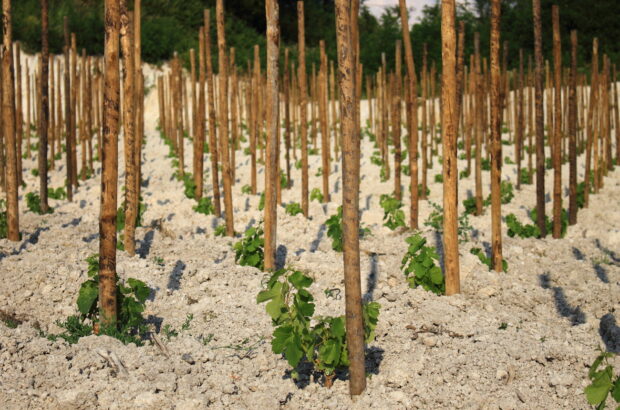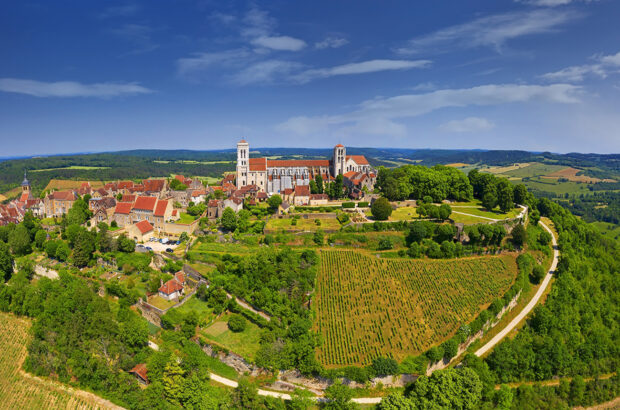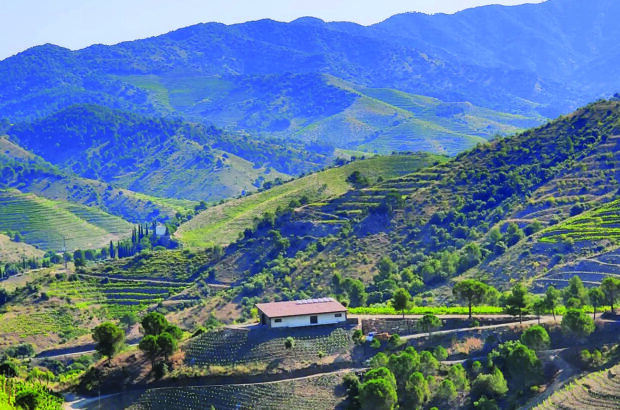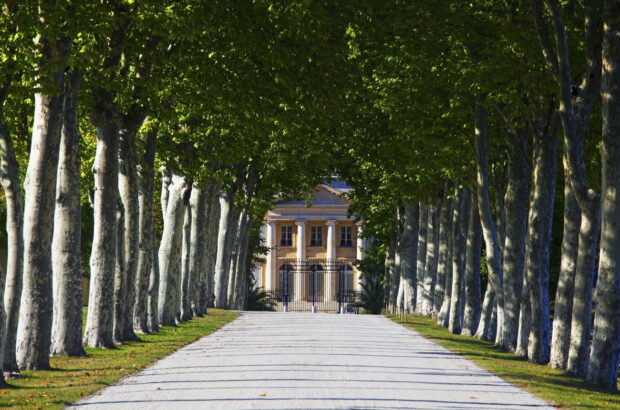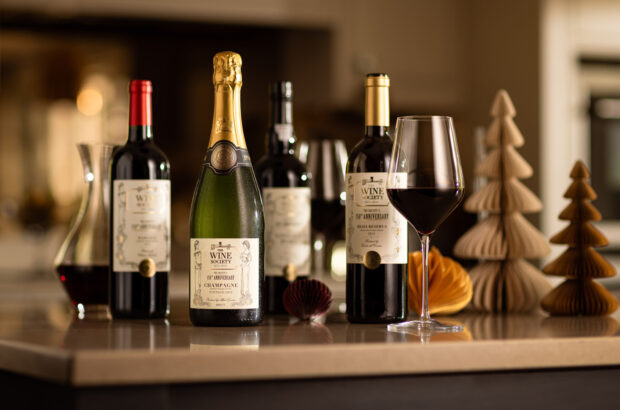Some of Italy’s most famous and exciting wines are shaped by a small number of wine consultants. This is not a new thing – Italy has a long history of influential and innovative consultant oenologists stretching back to the 1960s: the hugely respected Giacomo Tachis developed acclaimed wines such as Tignanello, and Giulio Gambelli, ahead of his time, believed in the strength of Sangiovese as a single variety. Just the mention of their names acted as a seal of approval and added to the allure and value of the wines they made.
Skilled wine consultants can improve dramatically both the quality of the wine and the management of wine production. In developing a wide portfolio of clients across different wine regions and countries, consultant oenologists bring a broader vision and knowledge to the production of a wine, applying their experience to help producers decide on the style of wine they want to make.
In the vineyard, their advice can extend to making improvements to the health and quality of the soil, as well as to the health, balance and management of the vines. In the winery, their main objective is to make successful wines that suit the requirements of the producer. Engaging a consultant oenologist can add a certain glamour and prestige to a wine, attracting the attention of critics and even raising the market price. Witness the effect of Tachis and the fact that Tignanello, when originally labelled as a humble ‘vino da tavola’, became one of Italy’s first collectible wines.
I consider the style and influence of four of Italy’s most famous wine consultants – Riccardo Cotarella, Carlo Ferrini, Luca D’Attoma and Emiliano Falsini – along with two rising stars set to become big names in the future: Gian Luca Colombo from Piedmont, and Alessandro Leoni, who works in Umbria.
Riccardo Cotarella
One of the most famous names in Italian winemaking today, Riccardo Cotarella has earned the nickname Il Mago (the wizard) for his skills. President of the Italian oenologists’ association, Assoenologi, and of the Union Internationale des Oenologues, Cotarella makes wines in France, Spain, Russia, Romania, Israel and Japan, as well as throughout Italy. At lower price points his wines are fresh, fruity and delicious, and at the top level, world-class.
I first met Cotarella in Campania, at La Guardiense, a cooperative in Benevento where he has created the stunning Janare Senete Falanghina del Sannio white, lifting the reputation of not only the variety but also the co-op and the area. Indeed, Cotarella has been on a mission to champion and sometimes rescue less well-known or rare native varieties with his own family company Falesco, enhancing the profile of areas including Lazio, Umbria and the south of Italy. ‘Since the beginning of my career,’ he says, ‘I have wanted to dedicate myself to territories mistakenly considered unsuited to high-quality viticulture.’ Cotarella cites Tachis as his greatest influence: ‘I was fortunate enough to first meet Giacomo in 1981 and experience first-hand what, at that time, were absolute innovations in viticulture and oenology.’ Cotarella’s Montiano, a Merlot from Lazio, was a turning point for him – and for his profession. It was ‘a Copernican Revolution for the Lazio region and for its producers’, he says. ‘It was a wine that proved to everyone, even the most incredulous, that research in the vineyard, science and cultivation could give value to territories that had hitherto been forgotten or destined for the production of wines without personality and character.’

Luca D’Attoma, pictured with Elena Celli
Luca D’Attoma
After starting his winemaking career in the 1980s, Luca D’Attoma became a freelance consultant oenologist in the early 1990s, when he consulted for wineries including Fattoria Le Pupille, Le Macchiole and Tua Rita. He also established Duemani with his partner Elena Celli. His wines have beautifully precise and clearly delineated aromas, especially his own-label wines, which have signature concentration with a rich texture, but are at the same time fresh and elegant.
D’Attoma’s style is defined by his strong beliefs and visionary approach: ‘I take responsibility for my choices even when they may seem risky. If you want to do this job, you must be able to carry out your ideas with courage but also be able to listen to others.’ D’Attoma describes himself as an innovator: ‘At the beginning of the 1990s I staked everything on Cabernet Franc, when no one yet believed in it. I began to advise companies to convert to organic viticulture… now everyone is talking about organic. I was also a forerunner in focusing on some less famous vines, such as Canaiolo, Rebola and Petite Arvine, in which I believed and I’ve enhanced.’
In more recent years, D’Attoma has embraced biodynamic practices as well as the use of clay amphorae in the cellar. He consults to a dazzling array of wineries throughout Italy, including Cantina Toblino in Trentino and Antonella Corda in Sardinia.

Carlo Ferrini. Credit: AGENZIA SINTESI / Alamy Stock Photo
Carlo Ferrini
Born in Florence, Carlo Ferrini is one of Italy’s foremost consultant oenologists. In his 20s he worked for the Chianti Classico consorzio and was involved in intensive research to find better-quality Sangiovese clones. ‘I believe much more in the vineyard than in the cellar,’ he tells me. ‘The evolution… in the past 20 years in Italian wines we owe in part to technological evolution in the cellar, but above all it is thanks to the search for new clones of the various Italian vines.’
Probably Ferrini’s biggest break came in 1992 when the Marchesi Mazzei estate asked him to be Fonterutoli’s oenologist. In Ferrini’s words: ‘I was young. It was a great opportunity for me and a great risk for the company.’ Obviously, they saw something special in the young winemaker.
Ferrini’s name is now associated with a long list of top producers including San Leonardo in Trentino, Barone Ricasoli in Tuscany (Castello di Brolio) and Tasca d’Almerita at its Tascante and flagship Regaleali estates. Recently, Ferrini has developed his own wines under the Giodo label, having acquired some old bush-trained vines on Etna and some land in Brunello di Montalcino. His wines have an outstanding refinement, flowing across the palate with a kind of aristocratic ease. When asked to define his style, he replies: ‘Harmony between a good perfume and a great structure, but the factor that interests me most is elegance. I always say that the most important thing is elegance, elegance, elegance!’

Emiliano Falsini
Emiliano Falsini
Seeing himself as very different to the ‘old school’ of winemakers in his approach, Emiliano Falsini is open to new experiences and encourages a relationship of equality with producers, making decisions together.
‘I think I can guarantee competence, knowledge and sensitivity in winemaking choices, and a broad vision of what the world of wine is,’ he says. ‘I never use the same concept to produce wines – each producer and their wines must be different. I prefer to help people to make their own wines. I’m an important part of a complex system.’
Falsini gained experience working in California at Robert Mondavi, in New Zealand at Villa Maria, and then in Bordeaux, Burgundy, South Africa, Argentina and Chile, before applying his knowledge to Italy’s myriad wine regions and grape varieties. He consults for several leading producers up and down the country, in particular Girolamo Russo and Graci (two leading lights in Sicily), Tabarrini in Umbria, Giacomo Fenocchio in Barolo and Giovanni Chiappini in Bolgheri.
One of Falsini’s most exciting recent projects is the development of his own wines under the Limite label, launched this year with two new wines. One of these is a stunning Cabernet Franc from Bolgheri that’s a cross between a vibrant Loire style and a richer Tuscan style; the other is a very promising Nerello Mascalese from Etna.

Gian Luca Colombo
Gian Luca Colombo
At 38, Gian Luca Colombo is one of the youngest consultant oenologists in this group, living and working in Piedmont. Colombo has studied with many well-known consultants, including Sergio Molino and Donato Lanati. In 2011, he founded Segni di Langa with 4ha of rented vineyards in Roddi, and in 2014 he won the Gambelli Award for Best Young Italian Oenologist.
Since then, producers such as Alberto Burzi, Garesio Vini and Diego Conterno, among others, have employed Colombo to advise on their wines. He styles himself as a ‘true garagista’, literally making wines in the garage underneath his house.
I first came across Colombo’s wines at the regional consorzio’s biennial Grandi Langhe tasting in Alba a few years ago, and recognised that he had a special gift for Barbera and was making delicious Pinot Noir. In September 2019, we walked through his vineyards looking at Nebbiolo and old Barbera vines and I witnessed his meticulous care and attention to detail. He uses sustainable practices and is working towards organic and biodynamic conversion.
Colombo believes it is important to continue to learn: ‘Today, I am buying and tasting a lot from all wine regions. It is really important to keep updated and open-minded.’ He describes his style as ‘neo-classical’, matching ‘new know-how and old traditions’. His wines all have a beautiful clarity of aromas, and the tannins are very refined and reflect a modern and sophisticated approach. He has recently added a Barolo to his portfolio.

Alessandro Leoni
Alessandro Leoni
In 2005, after completing his agricultural studies in Piedmont, Alessandro Leoni started making wine, aged just 18. He became interested in viticulture thanks to a small plot of vineyards belonging to his uncle in Umbria. ‘At that time,’ he says, ‘I met Riccardo Cotarella, with whom I worked until 2018 in different cellars across the “bel paese”… setting up and running start-up projects, from the soil to the bottling. Creating a new cellar is truly emotional!’
I came across Leoni’s wines while I was on holiday in Capri, where some of the best local wines were from the producer San Salvatore 1988 – the San Salvatore Pian di Stio (made by Leoni and Cotarella) was such an elegant, pure and focused version of the Fiano grape. When I met Leoni in 2017, I was impressed by his desire to experiment with less famous varieties and places – he also oversees the production of a thrilling Biancolella made on Ischia in the Gulf of Naples.
Recently, Leoni returned to Orvieto in Umbria, the home of his first inspiration, where he has set up his own company, Feudi Spada. ‘Riccardo Cotarella has been a great teacher,’ he says. ‘I owe him a lot, but I have always had an innate love and passion for the land where my grandfather was born.’ Leoni’s Umbrian wines include an elegant Chardonnay, an unusual blend of Grechetto and Riesling, and a red made from Alicante – all delicious and characterful wines. I love the precision, purity and joyfulness of his white wines and am intrigued by the potential of his reds. I can’t wait to see what he will do next.
Wines from six leading consultants tasted by Susan Hulme MW:
Wines grouped by consultant winemaker, following order above.







